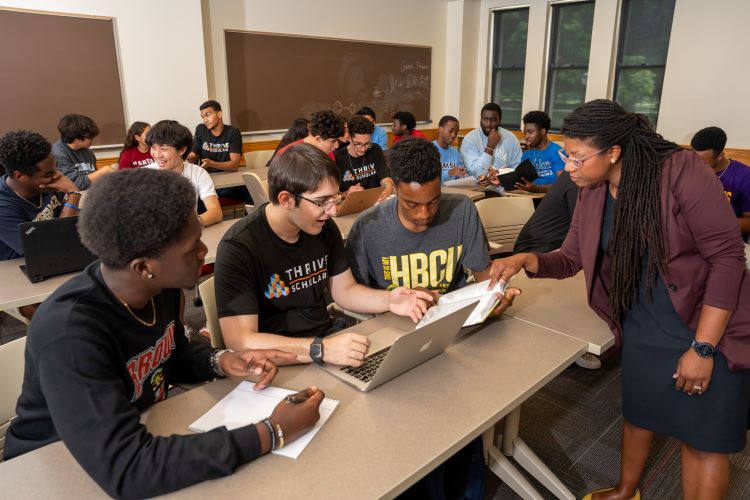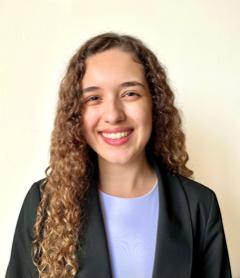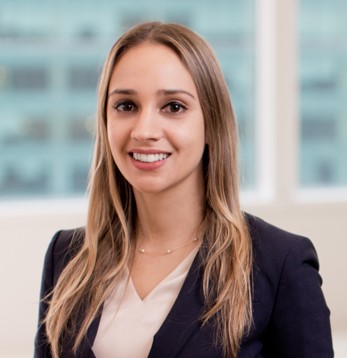BigLaw taps into underserved high schools for next generation of diverse lawyers

Students participate in the Thrive Scholars Chicago summer camp at the University of Chicago in 2022.
In the summer of 2020, legal industry strategist Peter Zeughauser invited Thrive Scholars founder James T. London to a Zoom call with about 100 law firm chairs.
London had created a program to help talented high schoolers of color in low-income communities get jobs in science, tech and finance. As law firm leaders contemplated ways to address calls for racial justice after the murder of George Floyd, some of them wondered if BigLaw could tap into the same program to nurture the next generation of diverse lawyers.
After the call, Thrive’s Law Pathway was born, with Zeughauser partnering with the nonprofit and a handful of BigLaw firms to help create it. He says the pathway had a “slow start” with around 20 scholars in its first year. Now there are 129, according to a Thrive spokesperson.
The legal profession is predominantly white, and it has long struggled with diversity. But in recent years, large law firms have sharpened their focus on hiring and retaining more diverse lawyers. Part of the effort has been on expanding the so-called pipeline, so there is a deeper pool of diverse talent at the recruiting stage.
What impressed Zeughauser about Thrive is how rigorously it prepares students for top colleges and jobs.
“There is not an Am Law 200 firm that doesn’t feel the need to be more diverse. When they hear about Thrive and see the data, it becomes very credible,” Zeughauser says.
Thrive Scholars CEO Steve Stein says students are under no obligation to work for the firms, and they are under no obligation to hire them. Thrive says participants are free to pursue jobs in other fields, whatever pathway they are on.
Tiffani G. Lee is an equity and diversity partner in Holland & Knight’s Miami office. She says that there was some pushback in her firm when the managing partner announced it would be committing $100,000 a year “to sponsor four scholars that we may never see, ever.”
“If we truly want to increase the number of lawyers from underrepresented groups in our profession, you have to invest,” Lee says. “And you have to consider it an investment in the profession.”
‘Get to them early’
Regardless of which pathway they are on, all Thrive Scholars attend two academic boot camps before their senior year of high school and first year of college, where college professors teach them the skills they need to succeed in science, technology, engineering and math. The program includes 350 hours of critical thinking, calculus and advanced writing skills.
The law pathway also offers LSAT prep, one-on-one coaching during law school and mentorship and internships in BigLaw firms.
 Sarai Chaidez is a college senior studying political science at Duke University in Durham, North Carolina.
Sarai Chaidez is a college senior studying political science at Duke University in Durham, North Carolina.
Thrive Scholar Sarai Chaidez knew when she was at Lawndale High School in Los Angeles that she wanted to be a lawyer.
“My parents are not in law. My family is not in law. I needed the guidance to know where to start,” says the 21-year-old, whose parents are first-generation Mexican immigrants.
Now in the law pathway, Chaidez is a college senior studying political science at Duke University in Durham, North Carolina. And she says Thrive has helped her make connections that might have otherwise been out of reach. She has interned at Baker Botts in Washington, D.C., and with Holland & Knight in its L.A. office.
She says Thrive mentors and coaches have also prepared her emotionally for what was to come.
“I knew that going to a prestigious school would make me encounter imposter syndrome and culture shock. I knew that those were things that I was going to have to face wherever I went,” says Chaidez.
But while Chaidez is one step closer to her dream of being a lawyer, there are many high-achieving students at underserved schools who fall through the cracks, Stein says.
“There’s so many more students who love law, who absolutely have the innate talent and motivation to go to a top law school, but they’re just not eligible because of the grades they have,” Stein says.
In 2018, an Association of American Law Schools and Gallup survey found that 49% of Black law school students had considered law school before high school and 68% before college. And 37% of Hispanic law school students considered law school before high school and 56% before college.
But without college counseling, academically rigorous classes, the right networking, career exposure and training, many students, “through no fault of their own,” miss out, Stein says.
 Maybelline Mena-Hadyka went through the program before a name change to Thrive Scholars in 2020, and she has been an associate at O’Melveny & Myers for five years.
Maybelline Mena-Hadyka went through the program before a name change to Thrive Scholars in 2020, and she has been an associate at O’Melveny & Myers for five years.
Investing in the profession
Maybelline Mena-Hadyka went through the program before a name change to Thrive Scholars in 2020, and she has been an associate at O’Melveny & Myers for five years. London had previously connected her with practicing attorneys before she went to law school.
“Otherwise, I would have never met a lawyer until I was working. So, that was really valuable to me,” Mena-Hadyka says.
Holland & Knight, Kirkland & Ellis, Pillsbury Winthrop Shaw Pittman, and Shearman & Sterling are the pathway’s lead sponsors, with eight others offering support. Through the law pathway, they sponsor and mentor two to four scholars per year, Stein says. Participating firms donate between $50,000 to $300,000 a year.
Stein says that the nonprofit plans to open 10 regional summer academies to serve hundreds of other students in local cities and rural areas.
It costs about $50,000 to fund each scholar over six years, Stein says. Thrive is asking for more money from corporate partners and law firms that could support as many as 300 new law pathway scholars each year if the academies are successful, he says.
When it comes to diversity initiatives, Stein says many firms and companies are focused on short-term results. But he says the reality is that it will take years to build a pipeline.
“For them to be so forward-thinking where they’re willing to make a significant investment now for something that’s not going to happen for 10 more years—I think the credit goes to them for being willing to do that,” Stein says of the law firms who have signed on.
Updated Oct. 28 at 2:46 p.m. to clarify when scholars attend the summer camps.



